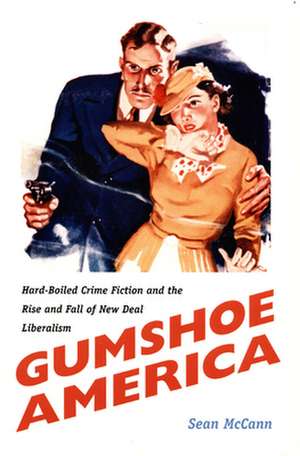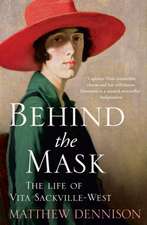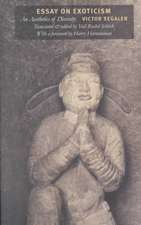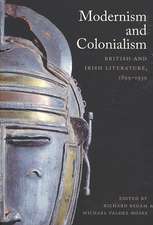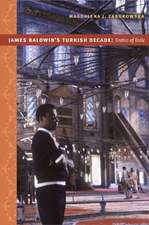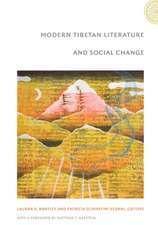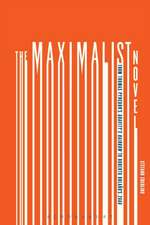Gumshoe America – Hard–Boiled Crime Fiction and the Rise and Fall of New Deal Liberalism: New Americanists
Autor Sean McCannen Limba Engleză Paperback – 5 dec 2000
Gumshoe America traces the way those problems surfaced in hard-boiled crime fiction from the1920s through the 1960s. Beginning by using a forum on the KKK in the pulp magazine Black Mask to describe both the economic and political culture of pulp fiction in the early twenties, McCann locates the origins of the hard-boiled crime story in the genre's conflict with the racist antiliberalism prominent at the time. Turning his focus to Dashiell Hammett's career, McCann shows how Hammett's writings in the late 1920s and early 1930s moved detective fiction away from its founding fables of social compact to the cultural alienation triggered by a burgeoning administrative state. He then examines how Raymond Chandler's fiction, unlike Hammett's, idealized sentimental fraternity, echoing the communitarian appeals of the late New Deal. Two of the first crime writers to publish original fiction in paperback - Jim Thompson and Charles Willeford - are examined next in juxtaposition to the popularity enjoyed by their contemporaries Mickey Spillane and Ross Macdonald. The stories of the former two, claims McCann, portray the decline of the New Deal and the emergence of the rights-based liberalism of the postwar years and reveal new attitudes toward government: individual alienation, frustration with bureaucratic institutions, and dissatisfaction with the growing vision of America as a meritocracy. Before concluding, McCann turns to the work of Chester Himes, who, in producing revolutionary hard-boiled novels, used the genre to explore the changing political significance of race that accompanied the rise of the Civil Rights movement in the late 1950s and the 1960s.
Combining a striking reinterpretation of the hard-boiled crime story with a fresh view of the political complications and cultural legacies of the New Deal, Gumshoe America will interest students and fans of the genre, and scholars of American history, culture, and government.
Din seria New Americanists
-
 Preț: 265.41 lei
Preț: 265.41 lei -
 Preț: 240.90 lei
Preț: 240.90 lei -
 Preț: 231.99 lei
Preț: 231.99 lei -
 Preț: 265.02 lei
Preț: 265.02 lei -
 Preț: 264.05 lei
Preț: 264.05 lei -
 Preț: 337.24 lei
Preț: 337.24 lei -
 Preț: 262.32 lei
Preț: 262.32 lei -
 Preț: 268.31 lei
Preț: 268.31 lei -
 Preț: 310.83 lei
Preț: 310.83 lei -
 Preț: 260.19 lei
Preț: 260.19 lei -
 Preț: 263.47 lei
Preț: 263.47 lei -
 Preț: 206.44 lei
Preț: 206.44 lei -
 Preț: 262.91 lei
Preț: 262.91 lei -
 Preț: 260.96 lei
Preț: 260.96 lei -
 Preț: 305.83 lei
Preț: 305.83 lei -
 Preț: 236.66 lei
Preț: 236.66 lei -
 Preț: 231.12 lei
Preț: 231.12 lei -
 Preț: 302.96 lei
Preț: 302.96 lei -
 Preț: 263.47 lei
Preț: 263.47 lei -
 Preț: 311.01 lei
Preț: 311.01 lei -
 Preț: 303.88 lei
Preț: 303.88 lei -
 Preț: 303.88 lei
Preț: 303.88 lei -
 Preț: 309.49 lei
Preț: 309.49 lei -
 Preț: 268.68 lei
Preț: 268.68 lei -
 Preț: 302.36 lei
Preț: 302.36 lei -
 Preț: 231.00 lei
Preț: 231.00 lei -
 Preț: 231.12 lei
Preț: 231.12 lei -
 Preț: 262.32 lei
Preț: 262.32 lei -
 Preț: 232.14 lei
Preț: 232.14 lei -
 Preț: 263.47 lei
Preț: 263.47 lei -
 Preț: 303.72 lei
Preț: 303.72 lei -
 Preț: 239.54 lei
Preț: 239.54 lei -
 Preț: 315.08 lei
Preț: 315.08 lei -
 Preț: 304.86 lei
Preț: 304.86 lei -
 Preț: 242.06 lei
Preț: 242.06 lei -
 Preț: 300.62 lei
Preț: 300.62 lei -
 Preț: 308.33 lei
Preț: 308.33 lei -
 Preț: 301.59 lei
Preț: 301.59 lei -
 Preț: 305.83 lei
Preț: 305.83 lei -
 Preț: 241.29 lei
Preț: 241.29 lei -
 Preț: 266.18 lei
Preț: 266.18 lei -
 Preț: 266.77 lei
Preț: 266.77 lei -
 Preț: 266.18 lei
Preț: 266.18 lei -
 Preț: 262.32 lei
Preț: 262.32 lei -
 Preț: 394.23 lei
Preț: 394.23 lei -
 Preț: 238.39 lei
Preț: 238.39 lei -
 Preț: 264.64 lei
Preț: 264.64 lei -
 Preț: 236.13 lei
Preț: 236.13 lei
Preț: 301.59 lei
Nou
Puncte Express: 452
Preț estimativ în valută:
57.72€ • 62.67$ • 48.48£
57.72€ • 62.67$ • 48.48£
Carte tipărită la comandă
Livrare economică 22 aprilie-06 mai
Preluare comenzi: 021 569.72.76
Specificații
ISBN-13: 9780822325949
ISBN-10: 0822325942
Pagini: 384
Dimensiuni: 157 x 228 x 29 mm
Greutate: 0.51 kg
Ediția:New.
Editura: MD – Duke University Press
Seria New Americanists
ISBN-10: 0822325942
Pagini: 384
Dimensiuni: 157 x 228 x 29 mm
Greutate: 0.51 kg
Ediția:New.
Editura: MD – Duke University Press
Seria New Americanists
Notă biografică
Textul de pe ultima copertă
"The secret history of American crime fiction doubles back to the 1920s and 1930s American left. The noir novelists of Sean McCann's shrewd and disturbing "Gumshoe America "devised a fierce, experimental pop-Modernism, an intransigent anti-popular strain within popular culture. McCann writes passionately, argumentatively, authoritatively, alert to both accomplishment and loss. Probably no prior study of American crime fiction is more entangled in the claims and contradictions of community, race, class, and politics."--Robert Polito, author of "Savage Art: A Biography of Jim Thompson "
Cuprins
Descriere
Sees hard-boiled crime fiction in relation to a changing literary marketplace and as an arena for conflicts about citizenship, class culture, and democracy during the New Deal.
